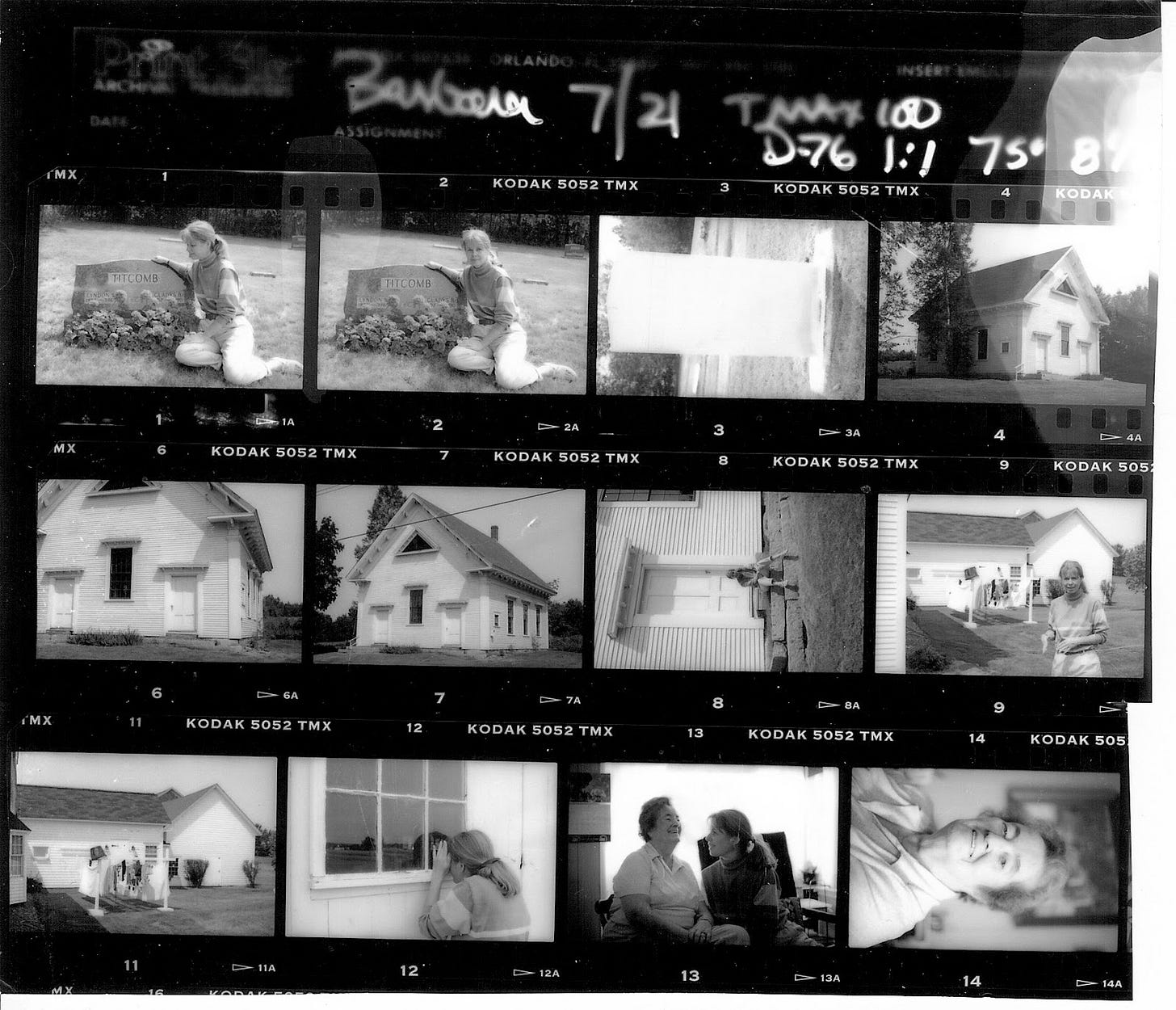Going to the Gravestones

Stephen* and I left Massachusetts to visit my grandparents’ gravestones in mid-central Maine, but had decided to first meet one of my mother’s closest friends who’d retired to the most eastern point of the United States. Elizabeth lived at the end of a long road of isolated houses that faced only the cold, blue Atlantic Ocean and a sardine factory, and that visit began our story collecting.
Returning west we met my mother’s brother and his wife at their lake cottage, when I saw them for a final time—listening to family tales previously unknown and revealing more about my parents.
Discovering my grandmother’s best friend still lived where I’d visited as a child, we heard her memories—as if we’d come to have secrets unfolded. Touring my grandparents’ farm, I left disappointed, but wiser, knowing that my memories were worth more. The barn was unchanged. But the tall, unfinished boards of the attic with dusty objects in a high window’s shafts of sunlight—that had been my special place—had become a modern bedroom.
The church my grandparents’ pony had pulled them to was opened only twice a year; and on the 4th of July, Stephen sang, while playing Amazing Grace on his guitar. It was a rare moment for my being Rowena Titcomb’s daughter, sitting where my mother had as a child.
After the service, a middle-aged family member of my grandparents’ neighbors asked me where I was based now, and unhesitatingly I answered, “in God,” startling us both—a foretelling of which I was oblivious.
Stephen and I crossed to my grandparents’ gravestones in the small cemetery, then wandered along short, dirt paths; and as I looked at the road’s corners, I wondered if that old apple tree was still the same one.
My realization is, “Revisiting our past may show us that we can’t go back, but might give us a memory of freshly adjusted value.”
*My partner and later husband
